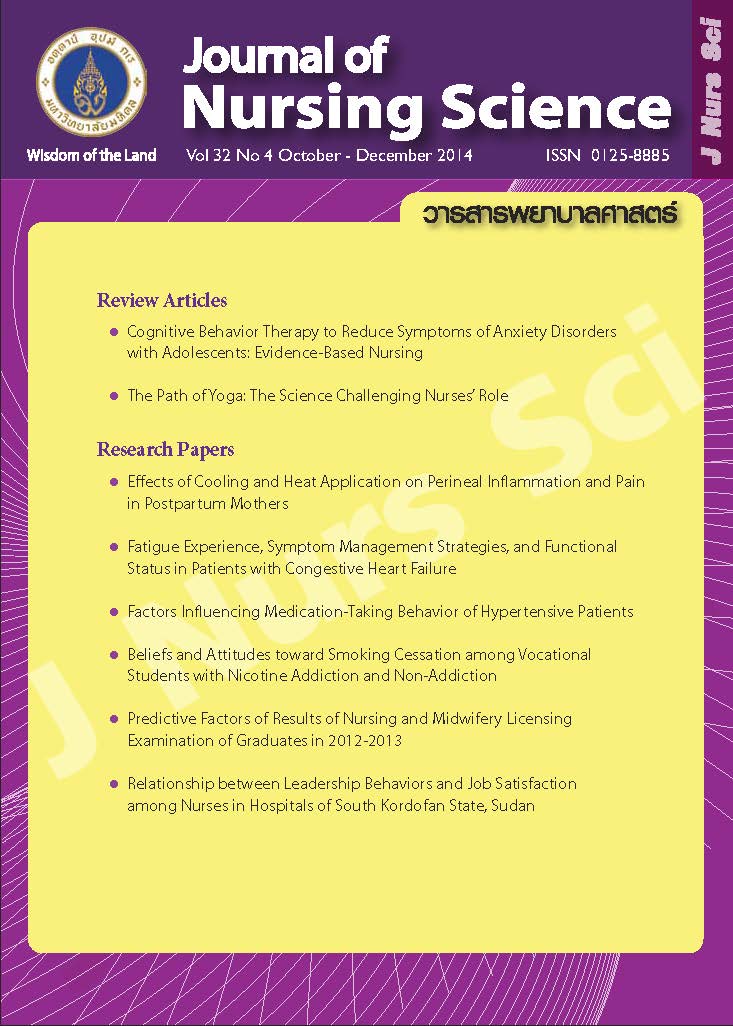Relationship between Leadership Behaviors and Job Satisfaction among Nurses in Hospitals of South Kordofan State, Sudan
Main Article Content
Abstract
Purpose: This study aimed to assess job satisfaction of nurses working at hospitals in South Kordofan State, Sudan and its relationship with transformational and transactional leadership behaviors.
Design: Cross-sectional survey research.
Methods: This study collected data from 184 nurses working at four hospitals in South Kordofan State, Sudan, using self-administered questionnaires. Descriptive statistics and Pearson’s correlation was used to analyze general characteristics and association between transformational and transactional leadership behaviors and job satisfaction.
Main findings: Almost half of the nurses (46.2%) had low levels of job satisfaction. They also predominantly reported low levels of transformational leadership (38.6%) and transactional leadership (52.2%). Job satisfaction was positively correlated with both transformational (r = .75; p < .001) and transactional leadership behaviors (r = .71; p < .001).
Conclusion and recommendations: Strong correlations between leadership behaviors and job satisfaction of nurses in Sudan suggest a solution to help alleviate the nursing shortage problem in South Kordofan State, Sudan. With good leadership behaviors, nurses would be more likely satisfied with the working conditions and would not only be willing to stay, but also perform their best to provide high quality care to their patients.
Keywords: leadership behavior, job satisfaction, nurses, South Kordofan State, Sudan
Article Details
Copyright Notice: Nursing Science Journal of Thailand has exclusive rights to publish and distribute the manuscript and all contents therein. Without the journal’s permission, the dissemination of the manuscript in another journal or online, and the reproduction of the manuscript for non-educational purpose are prohibited.

Disclaimer: The opinion expressed and figures provided in this journal, NSJT, are the sole responsibility of the authors. The editorial board bears no responsibility in this regard.


